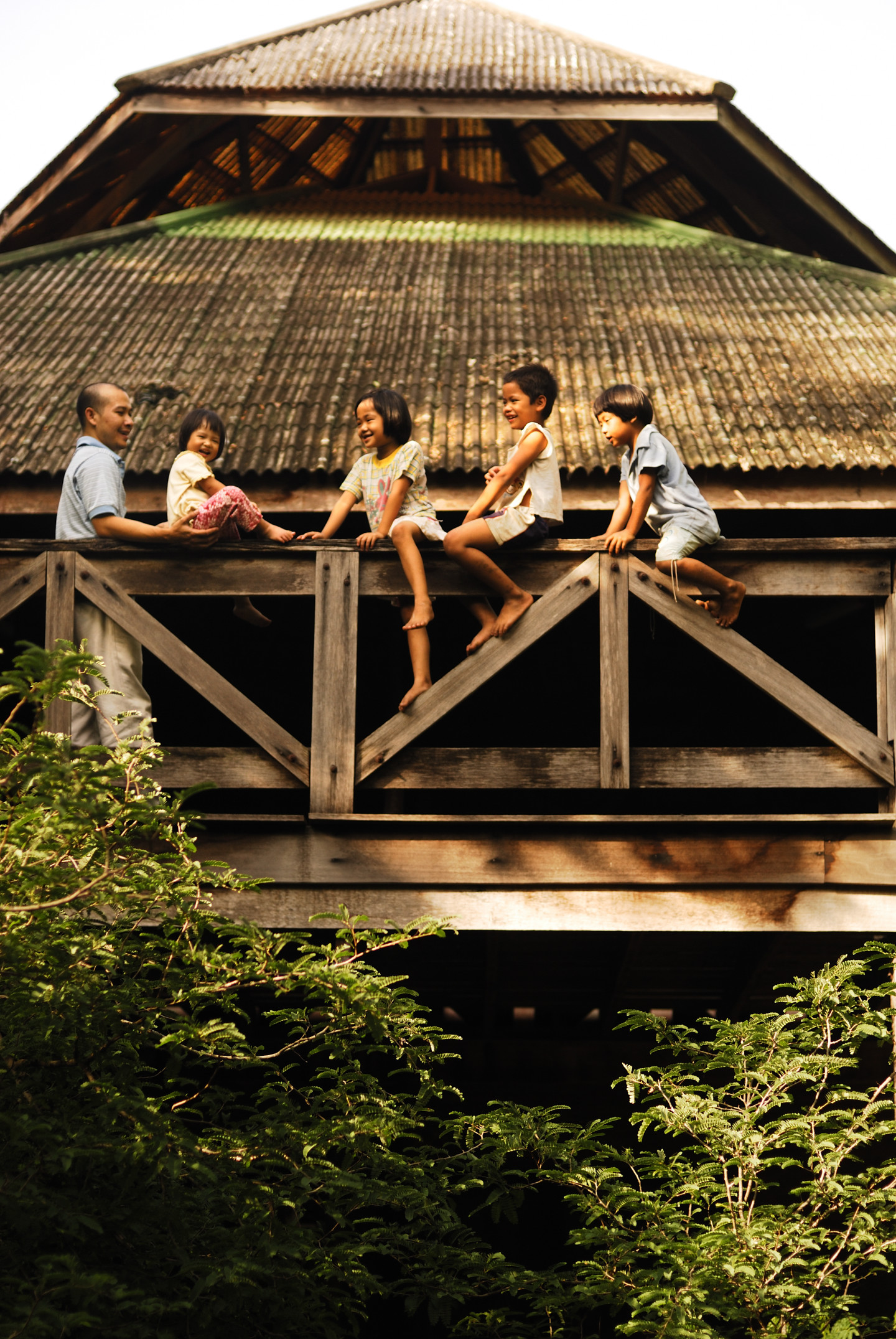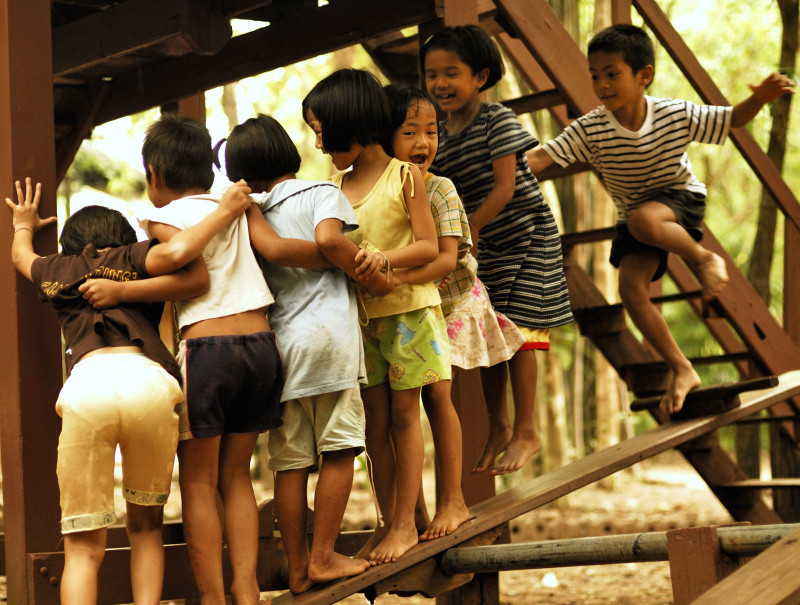This is the second in a two-part conversation with author David Gribble. After teaching in both conventional and democratic schools in England for more than 30 years, he visited nearly 20 other schools around the world that promote self-directed learning and recorded his observations in two books (“Real Education: Varieties of Freedom” and “Lifelines”). This conversation focuses on how underprivileged children fare in such environments.
David Gribble was curious to see how self-directed learning played out in different cultural as well as socio-economic contexts. So in addition to researching self-directed schools in Western societies, he also observed educational institutions in India and Thailand that catered to desperately underserved children, some of them living on the streets. What follows are some of his main takeaways from these visits, as well as his overall conclusions.
A Democratic School with a Buddhist Interpretation
Moo Baan Dek (which means “Children’s Village” in Thai) is a residential learning center located on 60 acres of woodland about three hours’ drive from Bangkok. It takes in slum dwellers as young as four who are unwanted by their families. In many cases, their backgrounds were harshly authoritarian; many were abused and arrived showing signs of defiance and aggression. The founders loosely modeled Moo Baan Dek on the Summerhill democratic school in England, with the belief that freedom, love and warmth would give the children courage to show their emotional scars and engage in therapeutic activities that would facilitate healing.
The faculty and students are considered equals and abide by the same rules, which are jointly decided at weekly meetings. Newcomers are given up to three years to simply play in the natural surroundings, without fixed goals and time limits. After that they are encouraged, but not required, to attend classes. There are adult-directed activities and certain routines (such as meditation and circle time), but a lot of inattention is tolerated. Children move through lessons at their own pace, and there is no disgrace in learning more slowly than one’s peers.

Unlike at Summerhill, children at Moo Baan Dek have work responsibilities (such as working in the center’s rice fields), but these are freely chosen, and there is a lot of discretion in how they are carried out (e.g., children are encouraged to listen to their bodies if they need a break). Children also collaborate with houseparents on menus and shopping, learning about home economics in the process.


